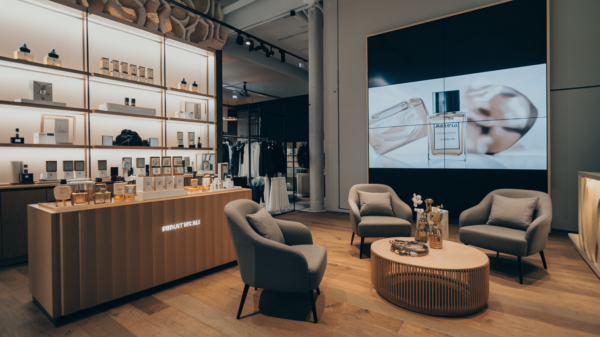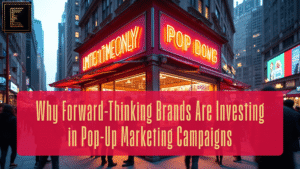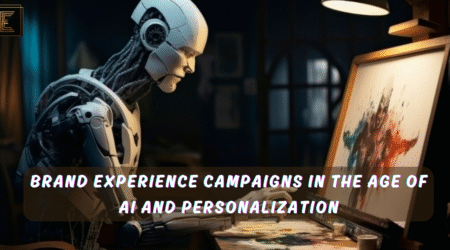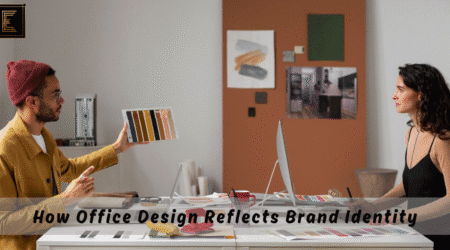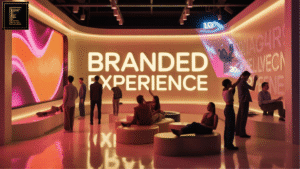In today’s competitive retail landscape, experiential retail has emerged as a game-changer for perfume and fashion brands. Rather than simply displaying products, brands are now creating immersive, multi-sensory experiences to attract, engage, and retain customers. But why is experiential retail so important, and how is it transforming the industry? Let’s explore.
Understanding Experiential Retail: What Is It?
Experiential retail is a strategy where brands go beyond traditional shopping experiences by incorporating interactive elements, technology, and immersive environments to engage customers.
Key Elements of Experiential Retail:
- Sensory Engagement: Using scent, sound, touch, and visuals to create an emotional connection.
- Interactive Displays: Smart mirrors, virtual try-ons, and AI-powered recommendations.
- Live Experiences: In-store fashion shows, product customization stations, and DIY workshops.
- Limited-Edition Pop-Ups: Temporary, exclusive shopping experiences that create urgency.
“The best marketing doesn’t feel like marketing.” – Tom Fishburne
Why Are Perfume & Fashion Brands Investing in Experiential Retail?
1. Enhancing Customer Engagement
A well-designed experiential retail space keeps customers engaged longer, increasing the chances of purchase.
📊 Retail Customer Engagement Increase with Experiential Retail:
| Engagement Strategy | Customer Retention Increase (%) |
| Sensory Branding | 40% |
| Interactive Displays | 55% |
| In-Store Events | 60% |
| Pop-Up Shops | 75% |
2. Driving Sales & Revenue Growth
According to studies, scent marketing alone can increase retail sales by 11% while immersive experiences can lead to a 20% boost in customer satisfaction.
“People will forget what you said, people will forget what you did, but people will never forget how you made them feel.” – Maya Angelou
3. Creating Memorable Brand Experiences
- Perfume brands use immersive scent rooms where customers experience different fragrances in unique settings.
- Fashion brands introduce personalized styling sessions and augmented reality (AR) dressing rooms to enhance the shopping experience.
Case Study: CHANEL’s Perfume Pop-Up
- CHANEL launched a perfume pop-up in NYC featuring an interactive “Fragrance Journey” where customers experienced scents inspired by different locations.
- The campaign boosted brand engagement by 45% and increased sales of CHANEL’s high-end perfume line.
4. Strengthening Brand Loyalty
Experiential retail fosters strong emotional connections between consumers and brands, leading to long-term customer loyalty.
🔑 POINTS TO REMEMBER:
✅ Sensory experiences make brands more memorable.
✅ Interactive elements keep customers engaged longer.
✅ Personalized experiences increase brand loyalty and repeat purchases.
“If people believe they share values with a company, they will stay loyal to the brand.” – Howard Schultz
Experiential Retail Trends to Watch in 2024 & Beyond
🔹 Augmented Reality (AR) & Virtual Reality (VR): Brands like Gucci & Prada use AR-powered fitting rooms.
🔹 AI-Powered Personalization: AI tools analyze preferences to curate personalized shopping experiences.
🔹 Sustainability-Driven Stores: Eco-friendly retail spaces with digital catalogs and minimal waste packaging.
Conclusion
Perfume and fashion brands are revolutionizing retail through immersive, interactive experiences that engage customers on a deeper level. Investing in experiential retail is no longer an option but a necessity for brands looking to stand out in an increasingly competitive market.
KEY TAKEAWAYS:
✔️ Experiential retail enhances customer engagement & sales.
✔️ Sensory branding boosts brand recognition & loyalty.
✔️ The global experiential retail market is expanding rapidly.
“Make your product easier to buy than your competition, or you will find your customers buying from them, not you.” – Mark Cuban
FAQs
1. What is experiential retail?
Experiential retail is a strategy where brands create immersive, interactive shopping experiences rather than just selling products.
2. How does experiential retail impact sales?
It increases customer engagement, extends store visits, and enhances emotional connections, leading to higher sales and repeat purchases.
3. Why are perfume and fashion brands adopting experiential retail?
These industries thrive on sensory engagement, and experiential retail allows them to showcase their products in unique, memorable ways.
4. What are some successful examples of experiential retail?
Examples include CHANEL’s interactive fragrance pop-ups, Gucci’s AR-powered fitting rooms, and Lush’s scent-based immersive stores.
5. What are the future trends in experiential retail?
Trends include AI-powered personalization, AR/VR fitting rooms, and sustainability-driven retail spaces.
🚀 Is your brand ready to embrace experiential retail? Let’s collaborate to craft immersive retail experiences that not only captivate your customers but also elevate your brand’s impact and revenue!

